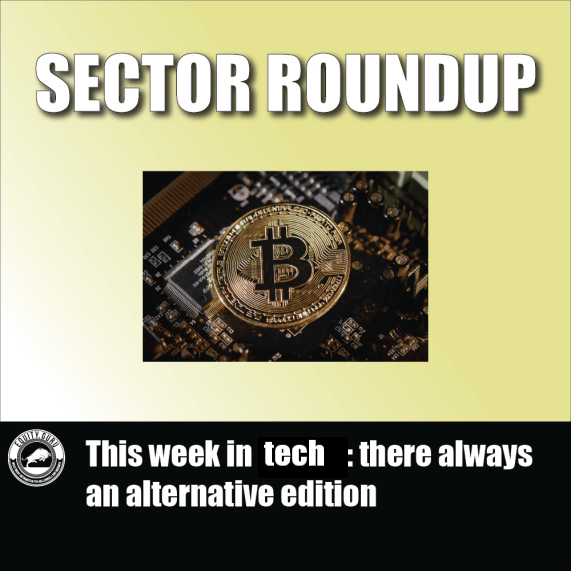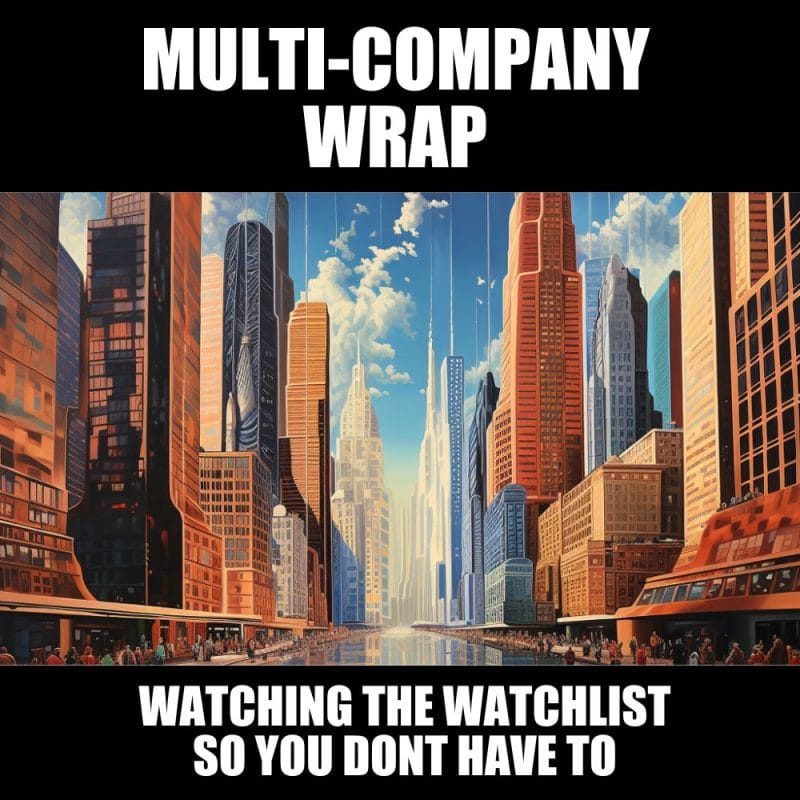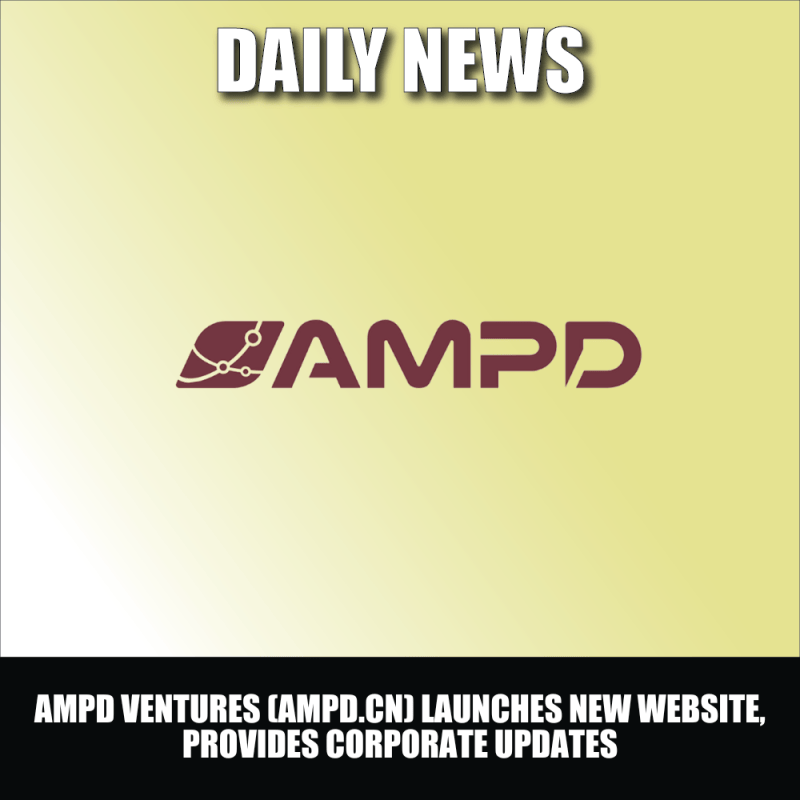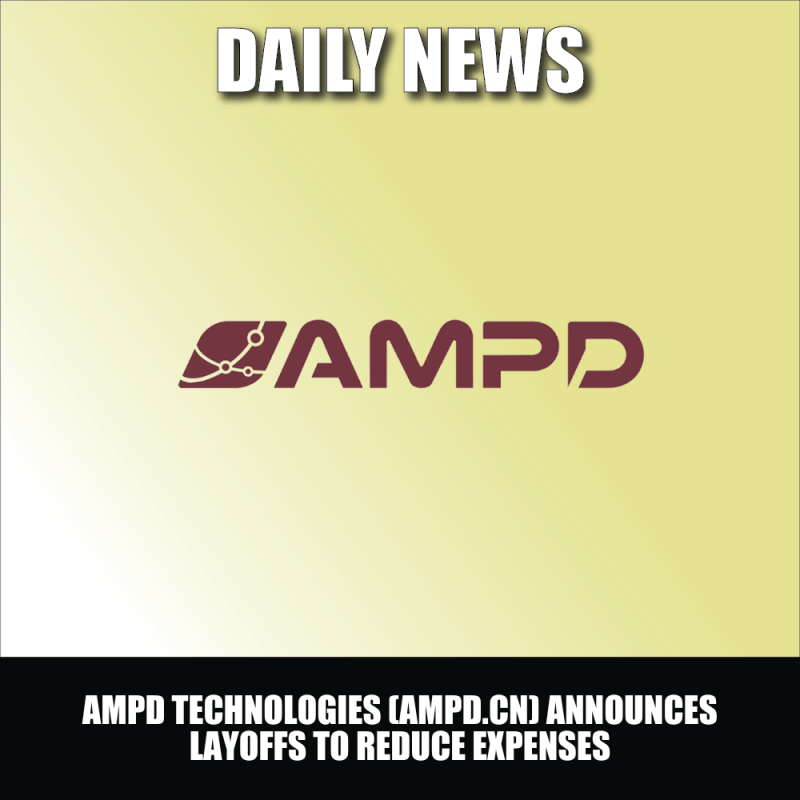Remember that there’s always an alternative.
You’ll notice the bitcoin is back and prominent in the featured image. It’s down and heavily so, but that’s probably not going to stay that way. I say probably, because who can tell for sure? Regardless, Bitcoin still represents a significant alternative to fiat. It’s an example of one way there’s always a strong alternative.
Here are a few others.
AMPD Ventures offers an alternative to reality
There’s a strong probability that we’re not done with mandates and lockdowns and the working-from-home crowd had best get settled. New technologies like the metaverse make it easy for the stay at home crowd to do just that, as the prospects of doing everything from ordering food in the metaverse and having it delivered to your house open up entire new vistas for shopping.
That’s one of the reasons the metaverse is a hot issue nowadays and plenty of companies are champing at the bit to get themselves a sweet slice of that pie. AMPD Ventures (AMPD.C) is one such group.
AMPD finalized their acquisition of the Departure Lounge courtesy of the funds raised by their oversubscribed private placement back in November. Now they can build upon their position as an infrastructure provider and develop into a full 360-degree metaverse-focused organization.
What Depature Lounge does it take them beyond the simple infrastructure provider for the metaverse and gives them the technologies, know-how and experience required to access, build, develop and perhaps most importantly, monetize the own version of the metaverse.
“I’d like to thank AMPD investors and partners for their ongoing support and belief in what we are doing, even during challenging market conditions. We continue to be excited about our growth and progress since the completion of the financial raise in November and look forward to sharing more exciting news in the near future,” said Anthony Brown, CEO at AMPD.
AMPD’s game is high performance computing solutions for low-latency applications in sustainable urban data centres. They’re a natural fit for the metaverse. We originally wrote about AMPD’s emergence as a metaverse angled play back in February indicating that they had all they needed to run the metaverse, except the brains behind the machine. Now they’ve got the brains.
The buildout is expected to be done by mid-June and bookings should be coming in shortly after.
In the interim, here’s their numbers:
- $1.7-million in Q3 2022 revenue (December, 2021, to February, 2022), representing a 275-per-cent increase compared with Q3 2021;
- $2.3-million in YTD (year-to-date) 2022 revenue (June, 2021, to February, 2022), doubling that of the same period YTD 2021;
- $900,000 in forecasted Q4 2022 revenue (March, 2022, to May, 2022), doubling that of Q4 2021;
- $3.2-million in forecasted FY 2022 revenue (June, 2021, to May, 2022), doubling that of FY 2021;
- Departure Lounge acquisition building upon AMPD infrastructure foundation to develop a full 360-degree metaverse company.
The United Kingdom’s loss is Lithuania’s gain
Sometimes the alternatives are geographical. In this case, Lithuania, which has a vastly more crypto-friendly regime, is the alternative for the United Kingdom.
Globalblock Digital Asset Trading (BLOK.V) has been in some hot water lately with European regulators. It’s been a curious regulatory merry-go-round between BLOK and regulators in the United Kingdom regarding registration as a crypto asset business with the Financial Conduct Authority in line with that country’s 2017 regulations on Money Laundering, Terrorist Financing and Transfer of Funds.
In the interim they get a temporary license to operate. Then there’s no communication for 20 months, and the only notice they do get is a warning notice.
It makes sense to leave when the regulatory environment is that hostile. Now they’re set up in Lithuania, which is far more amenable to crypto. The company’s digital asset brokerage and trading services business is being operated by Globalblock Europe UAB (GBE). It’s acting as a virtual asset service provider, and has jumped through all the regulatory hoops to set up in Lithuania. So that part of the drama is over.
Lithuania is one of the few states of the EU where legal financial transactions with crypto are accepted, and there’s even an official permit for the conduct and regulation of cryptocurrency business by the state.
“Now that we have established our European entity in a crypto friendly and fintech centric jurisdiction, we can build upon our foundations by continuing with our technology enhancements and developing our digital asset products and services. In conjunction with this will be the rollout of our marketing activities that will focus on GlobalBlock ‘service driven’ offering, something that is lacking within the digital asset space and will provide us with a highly unique selling point to differentiate us favourably from the competition,” said Rufus Round, CEO of GlobalBlock.
GlobalBlock Digital Asset Trading is a holding company that operates through its European subsidiary, Globalblock Europe. Said subsidiary is a digital asset broker based in the European Union that offers personalized telephone brokerage service, trading platform and mobile app. They’re an alternative option for those who trade in alternative currencies.
Are NFT Bored Apes going to produce the monotony of the future?

What tech roundup in 2022 would be complete without out at least one reference to NFTs—the singular market-sentiment driven alternative to common sense investments?
In this case, it’s EQONEX (EQOS.Q), which completed its first ever direct to custody over the counter non-fungible token trade.
The deal is part of the company’s new offering, wherein they provide exclusive NFTs through a network of regulated partners and also storage for the assets within Digitvault, an FCA-registered vault.
NFT’s got hot about two years ago and stayed hot until recently when it came out that there are plenty of scams and phishing attacks out there. Not to mention theft. In February, $1.7 million in NFTs were stolen after a phishing attack on NFT marketplace OpenSea users. One of these was owned by actor Seth Green, who intended on making a show out of the NFT. Now he can’t and maybe we’re all better off.
Will this spree of theft be enough to calm and cool the ardour surrounding these digital tulips? Hard to tell.
“Today’s deal is significant because there was no point in our process where the client needed to take custody of the asset, which dramatically reduced their risk of asset loss. We are creating a solution where clients will, in time, be able to directly view their NFTs alongside their crypto balances in the Digivault dashboard and know that the same level of security is applied to their NFT collection as there is for their BTC portfolio,” said Roger Cooper, CEO of Digivault.
Regardless, the Bored Ape Yacht Club NFT was purchased through the regulated Canadian brokerage Secure Digital Markets, which is also one of EQONEX’s partners, and put directly into the Digivault, alongside other cryptoassets, diamonds and silver.
The tech is catching up to the disease. Finally.
There’s some good news on the horizon for anyone effected by this pandemic.
Atmofizer Technologies (ATMO.C) announced today that they’ve signed a distribution agreement with Safeware. Safeware deals in safety equipment, supplying the U.S. state and local government and educational organizations for more than four decades. Safeware services and supports all aspects of safety for law enforcement and fire services, schools, public works and facilities.
Atmofizer themselves develop and manufacture products using a patent-protected and patent-pending tech for ultrafine particle collection and neutralization. The ability to do this gives a more efficient alternative method for addressing the range of nano-scale particles, viruses and bacteria too small to be managed by HEPA filters and ultraviolet lights.
“Safeware’s extensive national sales and distribution network has teams based across the country near their customers, which extends Atmofizer’s reach into regional U.S. markets on the ground. The contracting mechanism they use to make high-volume ordering easy for their customers is a great fit for helping these organizations get the benefits of Atmofized air at scale. Safeware has a proven track record of building trust, delivering results, and being a go-to provider for state and local governments, including K-12 and universities, which makes Safeware a strong partner in our largest domestic public markets. Their quick response to the major safety crises of the past twenty years, including direct involvement and sustained efforts during 9/11 and the California wildfires, also gives them first-hand experience and expertise protecting people from hazardous airborne nanoparticles,” said Whit Pepper, president and chief commercial officer for Atmofizer.
Starting in Q3 2022, Atmofizer’s products are going to go show up in Safeware’s inventory catalog and will be marketed by its sales and account teams across the United States. The company anticipates the first set of orders to start by Q3, 2022, and should be revenue generating by Q4, 2022.
If you’re curious, Atmosfizing refers to a process using ultrasonic acoustic waves to collect small particles into a larger target, which can then be irradiated using ultraviolet light to neutralized their harmful properties. They’re meant to be used in tandem with HEPA filters, improving on the latter’s efficiency while enabling the use of a less powerful filter, with benefits to operating costs and generally making your office a better place to work where viruses and the like can’t get you.
Given that we’ve got COVID-19 round five (or six or seven—I lost count) coming up in late September, it’s about time the tech started catching up with the disease.
ATI Airtest glides into the Ontario markets
Airtest Technologies (AAT.V) entered into an agreement with Alectric Renewables of Ontario, Canada to be their non-exclusive agent in the Ontario market.
“I’ve known the people at Alectric now for a number of years through a similar relationship at Smartcool Systems Inc. They have made several successful introductions for Smartcool and are excited to bring some of their solar clients to Airtest as well. Several projects are in the works and this agreement now formalizes the relationship between the companies. I’m looking forward to further enhancing the existing relationship as we bring new opportunities to successful conclusions,” said Ted Konyi, CEO of ATI Airtest.
Airtest is a greentech internet-of-things company involved in ventilation systems to improve commercial building operating efficiency and help conserve energy and money. The company has wireless sensors iwth real-time communication and control technologies, adding to a decade-long track record of thousands of installations dealing with clients like Lowe’s, Shoppers Drug Mart and Ikea. Their Airtest solutions provide data on levels of indoor air quality required by schools, retail stores and offices.
“There’s a tremendous opportunity right now for energy efficiency technologies generally and even more so in Ontario. Save On Energy, an Ontario government agency that provides subsidies for energy efficiency projects and provincial gas utilities, can jointly provide up to 70 per cent of the cost of installing Airtest’s wireless demand control ventilation solutions. This makes the financial decision a no-brainer, resulting in sub-one-year paybacks. A number of our solar clients have expressed interest in deploying Airtest Technologies and we should be very successful in generating additional sales for the company.”
The company is launching a new line of wireless tech with capabilities that will reduce carbon emissions, increase air quality in a COVID-19 environment and also help companies save money.
Genetether receives U.S. patent for gene editing tech
Here. As an alternative, have a healthy dose of science for the final entry.
Genetether Therapeutics (GTTX.C), a biotech company working in gene therapy, received a patent from the United States patent office called “Modified Acid Editing systems for Tethering Donor DNA” related to their Genetether platform tech.
Here are the stats:
“We believe that our technology, which showed a seven-times-higher gene editing efficiency in our proof-of-concept study, applies to most gene correction/gene complementation strategies, regardless of organ or disease,” said Roland Boivin, chief executive officer of Genetether.
The technology will help the company development treatments for certain types of kidney diseases, including autosomal dominant polycystic kidney disease and tubulo-interstitial kidney disease.
I have no idea what either of those diseases are, but I’ll take the doctor’s word for it that they suck.
—Joseph Morton







